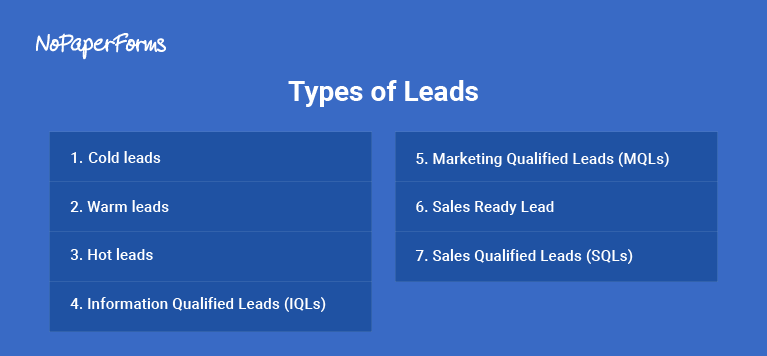If you work in sales or marketing, you are likely familiar with terms like lead, prospect, opportunity, and more. However, it’s important to note that these terms can have different connotations within an educational organization. In this blog post, we aim to provide clarity on the distinctions between lead and opportunity management, allowing you to better understand their significance in the context of education.
Lead and Opportunity Management play a vital role in sales and marketing by enabling organizations to effectively identify, nurture, and convert leads into paying customers or candidates. This comprehensive process ensures that the investment in sales and marketing efforts yields optimal results and helps achieve the desired business outcomes.
What is a Lead?
A lead is a potential customer who has shown interest in a course offered by an educational organization. Leads are usually generated through various marketing channels such as social media, email campaigns, webinars, and events.
What is Lead Management?
Lead management is the process of identifying, capturing, nurturing, and converting leads into customers. The goal of lead management is to prioritize and manage leads based on their potential and convert them into paying customers. Steps involved in Lead Management Process:
- Lead Generation: Identifying and capturing leads through various marketing channels.
- Lead Qualification: Evaluating leads based on their potential value to the organization.
- Lead Nurturing: Building relationships with leads through targeted communication and education.
- Lead Conversion: Closing the sale and converting leads into paying customers.

How CRM helps in Lead Management?
A Customer Relationship Management (CRM) system helps to automate and streamline the lead management process. It provides a centralized database to store and manage leads and helps to track and analyze lead behaviour and engagement. It also enables organizations to personalize communication and tailor the lead nurturing process to meet the specific needs of each lead.
What is an Opportunity?
An opportunity is a potential sale that has been qualified as having a high likelihood of closing. In order words, an opportunity can also be known as a potential candidate. Opportunities are usually tracked in a sales pipeline and are managed through the opportunity management process.
What is Opportunity Management?
Opportunity Management refers to the process of tracking and managing sales opportunities. The goal of opportunity management in CRM is to increase sales and revenue by providing visibility into the sales process and ensuring that all sales opportunities are tracked and managed effectively.
What is a Sales Pipeline?
A sales pipeline is a visual representation of the sales process showing the end-to-end progress of each opportunity. It helps organizations track the status of each opportunity and provide visibility into the sales process. A sales pipeline contains various stages and in order to move from one step to the next, the lead must meet certain requirements. These demonstrate a lead’s level of interest in your organization. An individual who has progressed through several phases and is currently in the last or second last step, just before closing the deal, is said to be a sales opportunity.
When does a Lead become an Opportunity?
Leads that have high chances of getting converted into sales deals often have many opportunities associated with them. For a lead to qualify as an opportunity is mainly done with the help of the sales team and their assurance based on certain pointers, making sure that only authentic opportunities go into the sales pipeline.
Lead and Opportunity Management: A Closer Look at the Difference
Lead management focuses on identifying, nurturing, and converting leads into customers, however, opportunity management prioritizes tracking and managing sales opportunities. While lead management is a crucial part of the overall sales process, it integrates with opportunity management to ensure sales potential. Lead Management and Opportunity Management are interrelated concepts in sales and marketing which focus on different stages of the sales process
- Lead Management: The goal of lead management is to identify and nurture leads to convert them into customers. It involves activities such as lead generation, lead qualification, lead nurturing, and lead conversion.
- Opportunity Management: The goal of opportunity management is to track and manage sales opportunities within a sales pipeline to increase sales and revenue. It involves activities such as opportunity creation, opportunity qualification, opportunity tracking, opportunity forecasting, and opportunity analysis.
Both concepts work together to achieve the desired business outcomes wherein opportunity management is an evolved version of lead management.
Lead and Opportunity Management in a CRM
A CRM system provides a centralized platform to manage both lead and opportunity management processes. It provides a centralized database to store and manage leads and opportunities and helps organizations track and analyze lead and opportunity behaviour. CRM also enables organizations to personalize communication and tailor the lead nurturing and opportunity management processes to meet the specific needs of each lead and opportunity.
A CRM allows leads to automatically collected, stored, distributed, and nurtured, and this comes under Lead Management. Additionally, it enables you with drip marketing and allows you to create landing sites. You can integrate it with other platforms like social media by utilizing a variety of third-party APIs.
Coming to opportunity management, leads can be prioritized for that too by the CRM suite. It provides you visibility as to which lead you should concentrate on first using data-driven predictions. Since every lead in the system has a progress bar that you may follow. A CRM provides you with a thorough overview of every contact you have. You can monitor the revenue, anticipate closure and the prospects that require urgent action. Additionally, it serves as a central location for document storage, the sending of quotations and invoices, team collaboration, and the use of robust reports to assess your sales and marketing initiatives.
By combining lead and opportunity management under one roof, CRM software makes both processes simpler.
Are you looking for one such solution to provide you with all the lead and opportunity management in a single unified solution? Switch to Meritto (formerly NoPaperForms) today!




